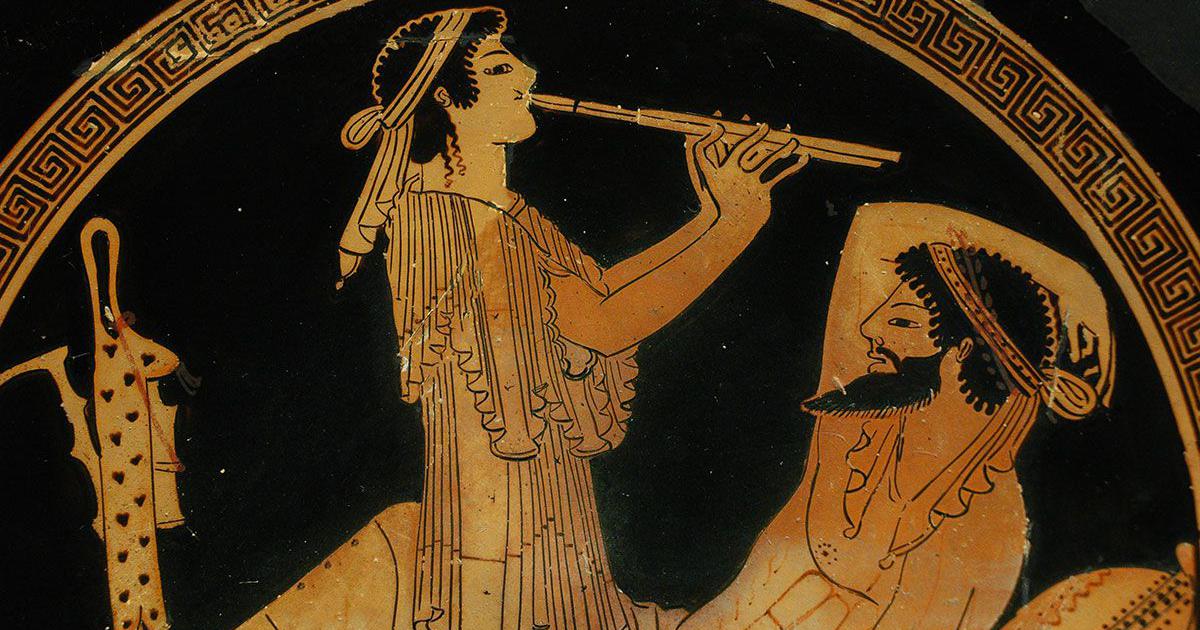

More than two thousand years after ancient Greek and Roman music, a researcher has taken a major step toward revealing their exact tuning and intonation during ceremonies, plays, and feasts of the classical world. Dan C. Baciu of Münster University of Applied Sciences has analyzed 61 surviving pieces to reconstruct how these compositions likely sounded.
These rare compositions, preserved in manuscripts and on stone tablets, are written in two types of notation. One appears to be for string instruments, like the lyre, while the other seems suited for voice or wind instruments, like the double-piped aulos.
Baciu’s findings show that instrumental pieces were composed using perfect tuning, with notes that harmonize cleanly without clashing sounds—an achievement requiring a mathematical understanding of sound.
This ideal tuning relied on simple ratios between notes. An octave, for example, corresponded to a 1:2 ratio, while a fifth followed a 2:3 ratio. These were not just abstract numbers—they reflected actual relationships in vibration.
If one string vibrated at a certain speed and another at twice that speed, the result would be a pure octave. These combined ratios resulted in clear, resonant sounds devoid of distortion.
Yet, the system had its limits. In some sequences of notes, strict use of these perfect ratios led to a small mismatch at the end—a phenomenon known as the syntonic comma. The final note would sound slightly off compared to where the sequence began.
Ancient composers were aware of this issue. In lyre music, they avoided it through careful planning. But in vocal music, they embraced the imperfection.

Instead of correcting the tone mathematically, singers introduced subtle changes in pitch, sliding between notes or adding small vocal inflections. These deviations gave the melodies greater expressiveness and emotional depth.
The contrast between the structured style of lyre music and the freer, more fluid approach in vocal music reflected a deeper cultural divide.
In ancient Greek thought, this difference symbolized two forces. Apollo, god of the lyre, stood for order, logic, and harmony. Dionysus, linked to wind instruments and wine, represented passion, instinct, and unpredictability. Baciu argues that this musical contrast also connects with early philosophical ideas.

Ancient Greek philosophers like Democritus and Epicurus believed the universe was made of tiny particles called atoms. To explain movement and change, they proposed that atoms sometimes swerved slightly from their paths—a concept known as the “swerve.”
Baciu parallels this idea and the subtle vocal shifts in ancient music, where small deviations create complexity and beauty.
This principle also appears in Greek architecture. The Parthenon, for example, appears straight but contains intentional curves and tilts. Similarly, the flowing lines of vocal melodies reflect a design that values the natural, the imperfect, and the human.
This study offers a rare glimpse into ancient Greek music, revealing how its exact tuning and subtle intonation brought structure, emotion, and philosophy into perfect harmony.
